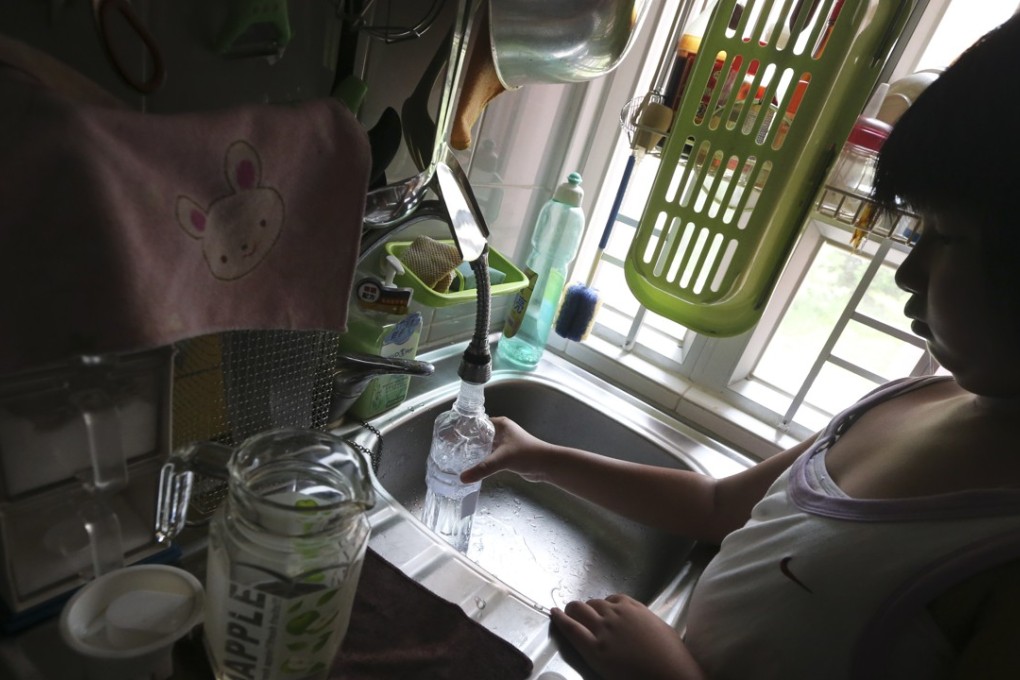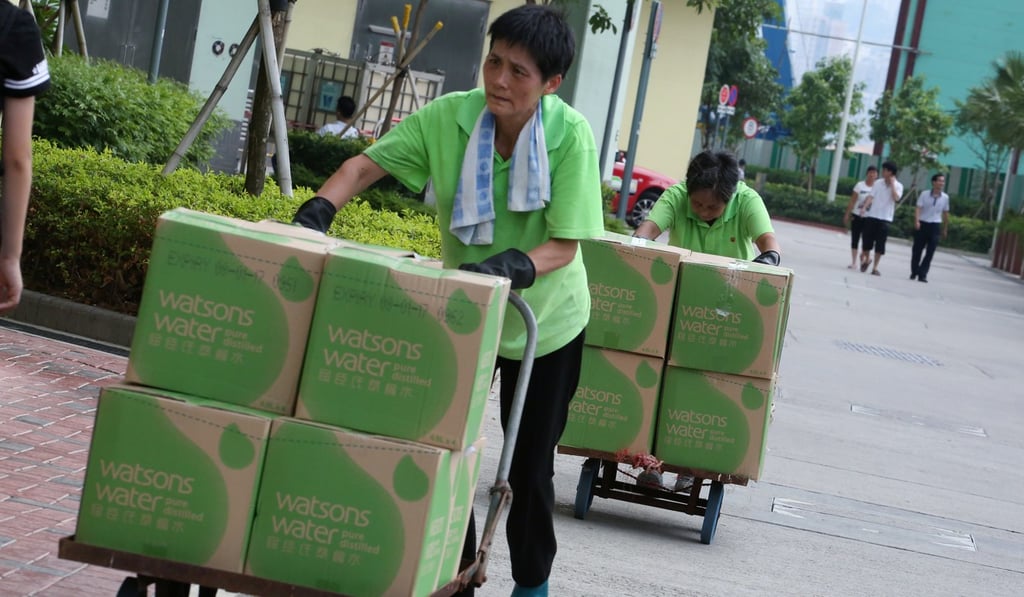What you should know about Hong Kong’s new drinking water regulations
Overhaul of sampling and testing systems comes two years after 2015 lead contamination scandal

Changes to how Hong Kong monitors and tests its drinking water were announced on Thursday, including a new approach to tap water sampling, testing for heavy metals and standards that go beyond guidelines set by the World Health Organisation.
1) What prompted the government to work out new measures to tighten water safety checks and implement a stronger regulatory framework?
The move was prompted by the lead contamination scandal in July 2015, when water samples from 11 public housing estates accommodating 29,000 households were found to have contained excessive lead. More than 160 affected people were found to have higher blood lead levels. As of last month, at least five people were found to still have mildly elevated levels of lead in their blood.
Monitoring standards for Hong Kong’s drinking water to go beyond WHO levels, officials say
Of the 126 children with elevated blood lead levels assessed for development delays, nine were still showing signs as of last month and were being rehabilitated. But the government said it was hard to prove if this was a result of lead exposure.
A commission led by a High Court judge concluded in May last year that leaded solder in the pipes had directly caused the contamination, even though, on paper, the Housing Authority, Water Supplies Department, their contractors and licensed plumbers were all supposed to use lead-free solder in fresh water pipes.
In June last year, two former directors from a plumbing subcontractor that oversaw plumbing work at three housing estates affected by the scandal were arrested for have allegedly forged documents to cover up lead solder deliveries to two of the affected estates.

2) What has the government done after the scandal?
The government spent millions delivering bottled water to affected residents too afraid to use tap water. Standpipes were provided for affected households and blood tests for people in doubt were arranged. Pipes and taps in affected public estates are still being replaced. The government said on Thursday that 20 per cent of the affected households had had their water pipes and taps changed.
A commission was set up by then-chief executive Leung Chun-ying to launch a probe in July 2015. A report was published in May last year. A few days later, Leung apologised to the public.
